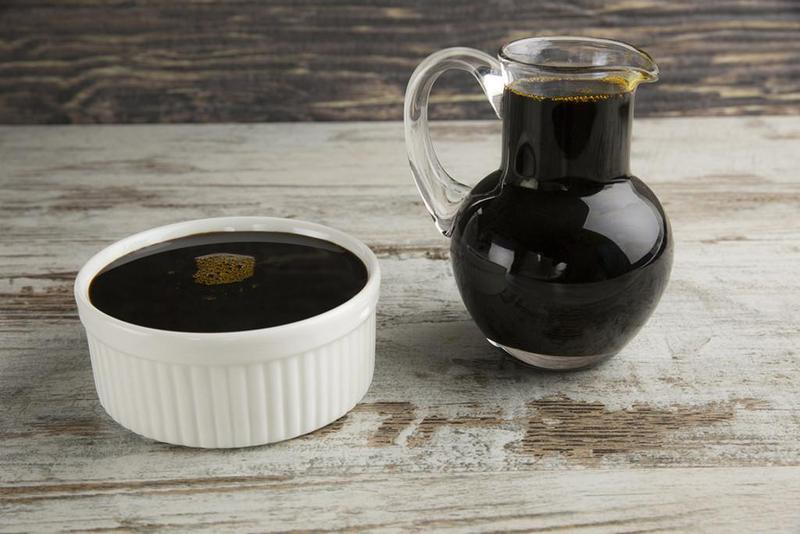The Benefits of Molasses
The Benefits of Molasses
In many cases, the byproduct of a refining process is bad news. This is the case with petroleum jelly, vegetable oils, and many other substances. However, one exception to this rule is molasses.
My only childhood memories of this strongly flavored syrup involved making cookies or ornaments once a year, but it turns out that molasses is great for much more than gingerbread cookies.
What is Molasses?
Technically, it is the byproduct of the sugarcane refining process. When sugar cane is mashed and boiled, cane syrup is created. A second boiling yields molasses and a third leaves blackstrap molasses.
It is important to note the distinction that the “refining” process refers to just boiling and not any other chemical process which is needed in many types of refining. Refining often removes beneficial parts of a substance, but in this case, the beneficial parts of the plant are retained and some sources would even consider it a superfood, high in Iron, B-vitamins, Magnesium and other nutrients.
Different Types
There are several different types to choose from:
Light– Produced by the first boiling of the sugar cane (or sugar beet). This type is lighter in color and can be sulphured or un-sulphured. Sulphured Molasses treated with sulphur dioxide acts as a preservative. Typically this type is extracted from young sugar cane, and the preservative is needed. Some people have gene mutations that make them react negatively to sulphur, so this is typically not the best type to use. Un-sulphured is extracted from ripe sugarcane that does not need a preservative. It is also sometimes referred to as “Barbados” or “mild” molasses
Dark– This is the product of the second boiling after more sugar has been extracted. It is less sweet than light molasses and is often used in cooking and baking. This is the type that most people are familiar with as it is often used in gingerbread cookies.
Blackstrap– The healthiest form that is produced by the third boiling. It contains the most vitamins and nutrients, but is also the least sweet and does not work well in many recipes. Blackstrap molasses is the highest in Iron, Manganese, Copper, Magnesium, Calcium and other nutrients and is the one I use most often (this is my favorite).
Benefits of Molasses
Personally, I’ve been making a molasses based switchel recipe that has helped keep my energy levels, digestion and iron levels great during pregnancy, but there are many additional benefits as well:
Iron Boost
Blackstrap molasses is one of the few great non-animal sources of iron. Many doctors and midwives recommend 1-2 tablespoons a day for those with anemia or related disorders. The high iron content and presence of minerals like magnesium make it helpful for menstrual troubles and pregnant women. There are many accounts of people who used molasses to help remedy anemia and also noticed improved skin and new hair growth from the additional minerals.
TIP: I don’t love the taste by itself, so I mix it into coffee, tea, or switchel to consume it daily. I always monitor my blood sugar during pregnancy (instead of consuming the glucose drink) and molasses does not negatively affect my blood sugar at all.
For Digestion
Minerals such as calcium, magnesium, and manganese also make molasses beneficial for digestion. Some people who suffer from constipation notice relief from consuming 1-2 tablespoons in warm water each day. It is also a natural stool softener and is exceptionally beneficial after pregnancy to help return digestion to normal and boost iron levels.
For Hair
Blackstrap molasses contains copper which is important for hair growth. Used internally and externally it may help improve hair growth and some people even report that it helped reverse graying hair and brought back their natural hair color when used regularly.
I definitely wouldn’t recommend pouring it directly on hair, but I like diluting it with equal parts water and pouring on hair as a 20-minute nourishing hair mask. (Note: It will darken hair slightly for a short time!)
Low-Sugar Sweetener
Though blackstrap molasses isn’t exceptionally sweet, it can be a substitute for sugar or syrup in some recipes or can be added to baked goods to boost the nutritional profile. I like using a 50:50 mixture with maple syrup as a sweetener in many of my recipes.
How to Use Molasses
Molasses is naturally not overly sweet, but it has an amazingly rich flavor that can add depth to many dishes. I enjoy using it mixed with another natural sweetener (like honey or maple syrup) in recipes or as a stand alone sweetener, and have also experimented with using it in the following:
Marinades: A couple tablespoons of blackstrap is a great addition to a meat marinade and adds a tiny hint of sweetness and a warm flavor.
Dressings: In vinaigrettes and dressings, a tablespoon or two adds great flavor.
Sauces: A delicious addition to barbecue sauces and other homemade sauces.
Smoothies: A tablespoon or more doesn’t usually change the taste of smoothies and is a great way to add nutrients.
Molasses also has a place in natural beauty remedies as it is great for skin and hair. It can be used to make an intensive moisturizing hair conditioning mask or directly on the face as a natural tightening face wash.
Kind to Use
Blackstrap molasses has the highest nutrient content and the lowest amount of natural sugar, so it is the preferred type of molasses to use in many cases. I personally like this un-sulphured organic blackstrap molasses which is naturally sweet and not bitter.
by Wellness Mama
Be the first to post a message!
